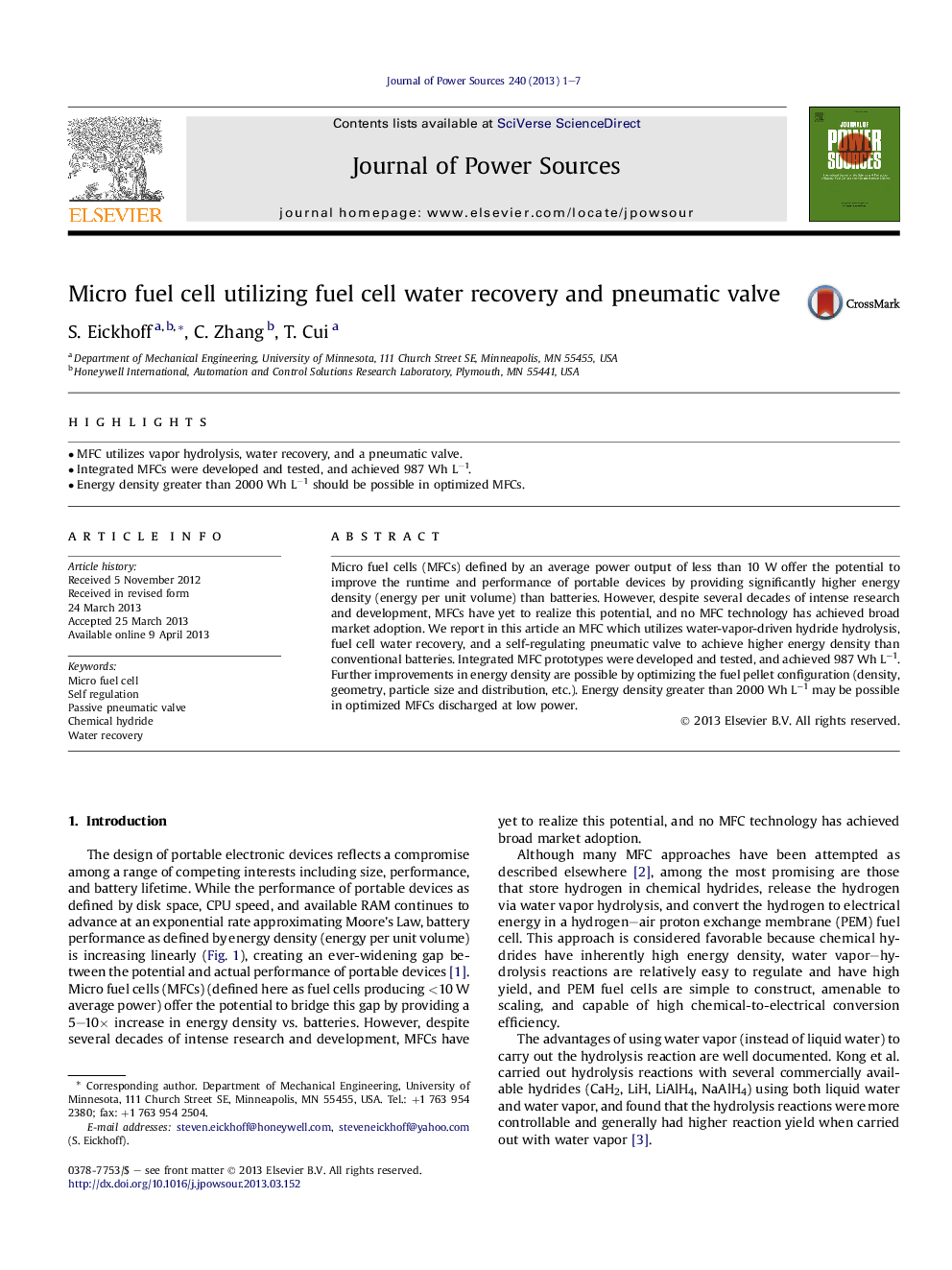| Article ID | Journal | Published Year | Pages | File Type |
|---|---|---|---|---|
| 7740054 | Journal of Power Sources | 2013 | 7 Pages |
Abstract
Micro fuel cells (MFCs) defined by an average power output of less than 10 W offer the potential to improve the runtime and performance of portable devices by providing significantly higher energy density (energy per unit volume) than batteries. However, despite several decades of intense research and development, MFCs have yet to realize this potential, and no MFC technology has achieved broad market adoption. We report in this article an MFC which utilizes water-vapor-driven hydride hydrolysis, fuel cell water recovery, and a self-regulating pneumatic valve to achieve higher energy density than conventional batteries. Integrated MFC prototypes were developed and tested, and achieved 987 Wh Lâ1. Further improvements in energy density are possible by optimizing the fuel pellet configuration (density, geometry, particle size and distribution, etc.). Energy density greater than 2000 Wh Lâ1 may be possible in optimized MFCs discharged at low power.
Related Topics
Physical Sciences and Engineering
Chemistry
Electrochemistry
Authors
S. Eickhoff, C. Zhang, T. Cui,
